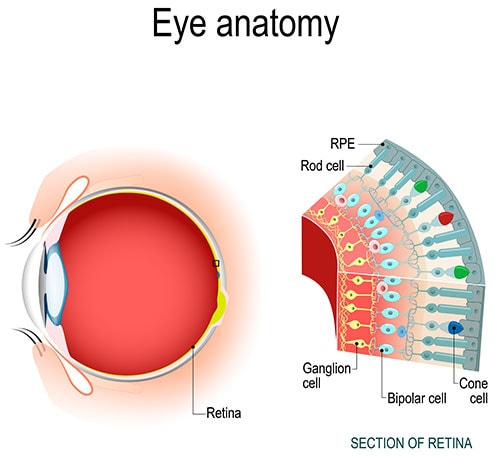All Categories
Featured
We commonly hear regarding securing our skin from hazardous ultraviolet (UV) rays, but did you recognize that UV exposure can likewise dramatically influence your eye health and wellness? Recognizing the results of UV rays on your eyes and exactly how to safeguard them is vital for keeping long-term eye wellness.
Kinds Of UV Rays. UV rays are classified right into 3 types:
UVA Rays: These rays permeate deep into the skin and can also impact the internal layers of the eyes. UVB Rays: These rays largely trigger damage to the skin's surface however can additionally damage the cornea and lens of the eye. UVC Rays: While these are one of the most damaging, they are mostly absorbed by the Planet's atmosphere and do not get to the surface area. Both UVA and UVB rays are harmful to your eyes, and with time, direct exposure can result in severe eye problems.
Short-Term Impacts of UV Direct Exposure. Even brief exposure to intense UV rays can cause immediate eye damages. An usual temporary problem is photokeratitis, usually referred to as "sunburn of the eye." Symptoms of photokeratitis include:
Inflammation and irritability. Level of sensitivity to light. Tearing or watery eyes. A gritty feeling, as if something is stuck in your eye. While the symptoms of photokeratitis are temporary and typically settle within a day or more, repeated incidents can have cumulative results on your vision.
Long-Term Results of UV Exposure. Chronic UV direct exposure can add to several major eye conditions, consisting of:
Cataracts: Over time, UV rays can cause clouding of the eye's lens, leading to cataracts, among the leading sources of blindness worldwide.
Macular Degeneration: Extended UV direct exposure can harm the retina, especially the macula, causing age-related macular degeneration (AMD), which influences main vision.
Pterygium: Likewise called "surfer's eye," this condition entails the growth of a fleshy tissue on the white part of the eye, which can expand over the cornea and impact vision.
Skin Cancer Around the Eyes: The delicate skin around the eyes is susceptible to UV radiation, enhancing the danger of skin cancer cells, such as basal cell cancer.
Pinguecula: UV exposure can likewise bring about yellowish down payments on the conjunctiva, which can cause irritability and pain.
Exactly How to Secure Your Eyes from UV Rays. Put On Sunglasses with UV Protection: Always choose sunglasses identified as blocking 100% of UVA and UVB rays. Wrap-around designs offer extra security by blocking UV rays from the sides.

Use a Wide-Brimmed Hat: Hats with a large border can reduce UV direct exposure by up to 50%, providing added coverage for your eyes and face.
Stay Clear Of Height Sunlight Hours: UV rays are best in between 10 a.m. and 4 p.m. Restricting your outdoor activities throughout these hours can aid reduce exposure.
Don't Forget Children: Kid's eyes are extra delicate to UV rays, so ensure they put on sunglasses and hats when outdoors.
Wear UV-Blocking Call Lenses: If you put on get in touches with, ask your eye treatment service provider concerning UV-blocking lenses for added protection.
Keep Protected Year-Round: UV damages isn't restricted to summertime; rays can reflect off surfaces like water, sand, and snow, making eye security necessary all year.
Final thought. Protecting your eyes from UV rays is important to preserving your vision and total eye wellness. The results of UV direct exposure may not always be prompt, however they can gather over time, leading to serious problems. By taking easy precautions like using UV-protective sunglasses, restricting exposure throughout height hours, and consistently seeing an eye care specialist, you can secure your eyes from the unsafe results of UV radiation. Remember, your eyes are irreplaceable-- take actions to shield them today.
Latest Posts
Find Cost-Effective Auto Repairs with Montclare’s Limited-Time Service Specials
Learn About Leading Vehicle Maintenance Services in Chicago – Drive with Confidence
Don’t Miss Special Auto Repair Deals in Chicago at Montclare Auto Repair
More
Latest Posts
Find Cost-Effective Auto Repairs with Montclare’s Limited-Time Service Specials
Learn About Leading Vehicle Maintenance Services in Chicago – Drive with Confidence
Don’t Miss Special Auto Repair Deals in Chicago at Montclare Auto Repair